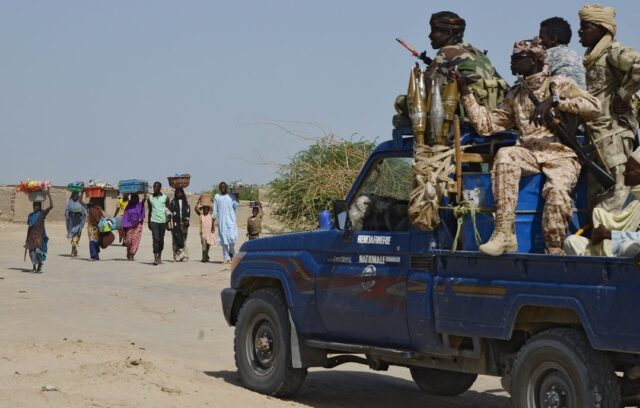

In recent months, the Defence Headquarters (DHQ) has periodically reeled out figures of Boko Haram and Islamic State in West Africa Province (ISWAP) insurgents who have surrendered, and are now willing to embrace peace.
Since the war against the insurgents began about ten years ago, the military had used both kinetic and non-kinetic approaches, and these days, the military tends to use more techniques from the latter approach. To underscore this shift in ideology, in April 2021, the codenames of the military’s operation against the insurgents were changed from lafiya dole (peace by force) to hadin kai (cooperation).
In many instances, however, the military had claimed that most of the insurgents surrendered as they could not withstand offensives launched on their enclaves.
These Boko Haram/ISWAP fighters are largely believed to be male adults, but interestingly, women and children dominate the list every time the military announces a surrender.
“ISWAP fighters and their families numbering 104 comprising 22 males, 27 females and 55 children surrendered to troops of 25 Task Force Brigade Damboa, Borno State on Saturday 5 February 2022,” the army had said in a recent update on February 7.
Earlier in January, the DHQ had also revealed how, within two weeks, “a total of 863 terrorists and their families comprising 136 adult males, 251 adult females and 476 children surrendered to own troops deployed at different locations”.
Again on Thursday, February 10, the DHQ said 550 children had surrendered to the troops.
WHO ARE THESE WOMEN, CHILDREN?
When Boko Haram invades a community and takes over the place, the original dwellers, now trapped, are usually presumed to be terrorists, explained a senior military officer with the intelligence unit.
“When the military raids an area believed to be occupied by the insurgents, whoever is caught is first considered to be a BHT – be it a woman or a child,” he said.
“There are about three different categories; there are those trapped, there are the active fighters and their families, and there are those prisoners or those abducted by the insurgents and are being used for menial jobs.”
These fighters, the officer explained, are married and their wives and children stay with them.
“Sometimes, you see one fighter marrying four women,” he said.
And because the insurgency has lasted more than a decade, the fighters and their wives, he said, continue to make children who are born into the world of terrorism.
“So, their wives, then women who were originally living in these communities and had been trapped, children of the insurgents, and those other children trapped are normally quick to surrender when troops close in on them,” he added.
According to the officer, the fighters prefer to have many women and children with them, so they could use them as shields whenever the air force attempts to strike their locations.
Amid increasing concerns over the labelling of children and women as Boko Haram/ISWAP fighters, TheCable learned that they are usually taken for profiling, after their surrender, to check their level of participation.
Those who are found to be trapped are then returned to their respective LGAs through the state government.
‘THOSE WOMEN ARE CIVILIAN CAPTIVES, NOT BOKO HARAM’
A source in Gwoza, Borno state — where more women and children labelled Boko Haram/ISWAP and are said to have surrendered — explained that they are, more often than not, victims of the insurgents and had been held captives in the bushes.
The source said once the women and children become a burden for their captors, they release them to the military.
“Those women and children are civilian captives that were freed by the insurgents because they do not have the resources to cater for them anymore,” he said.
“It’s sad they are the ones the army now regard as Boko Haram/ISWAP.”
Onyema Nwachukwu, army spokesperson, was not immediately available to comment on the matter.
Sani Usman, a former army spokesperson who spoke with TheCable, agreed that some of the women and children were coerced into being with the insurgents.
“A thorough investigation and screening will determine the level of culpability,” he said.
“It is not the ‘army’ per se, rather there is a joint investigation bureau that comprises all the intelligence agencies and other stakeholders.”
The procedure and processes, Usman maintained, are meticulous and tedious.






